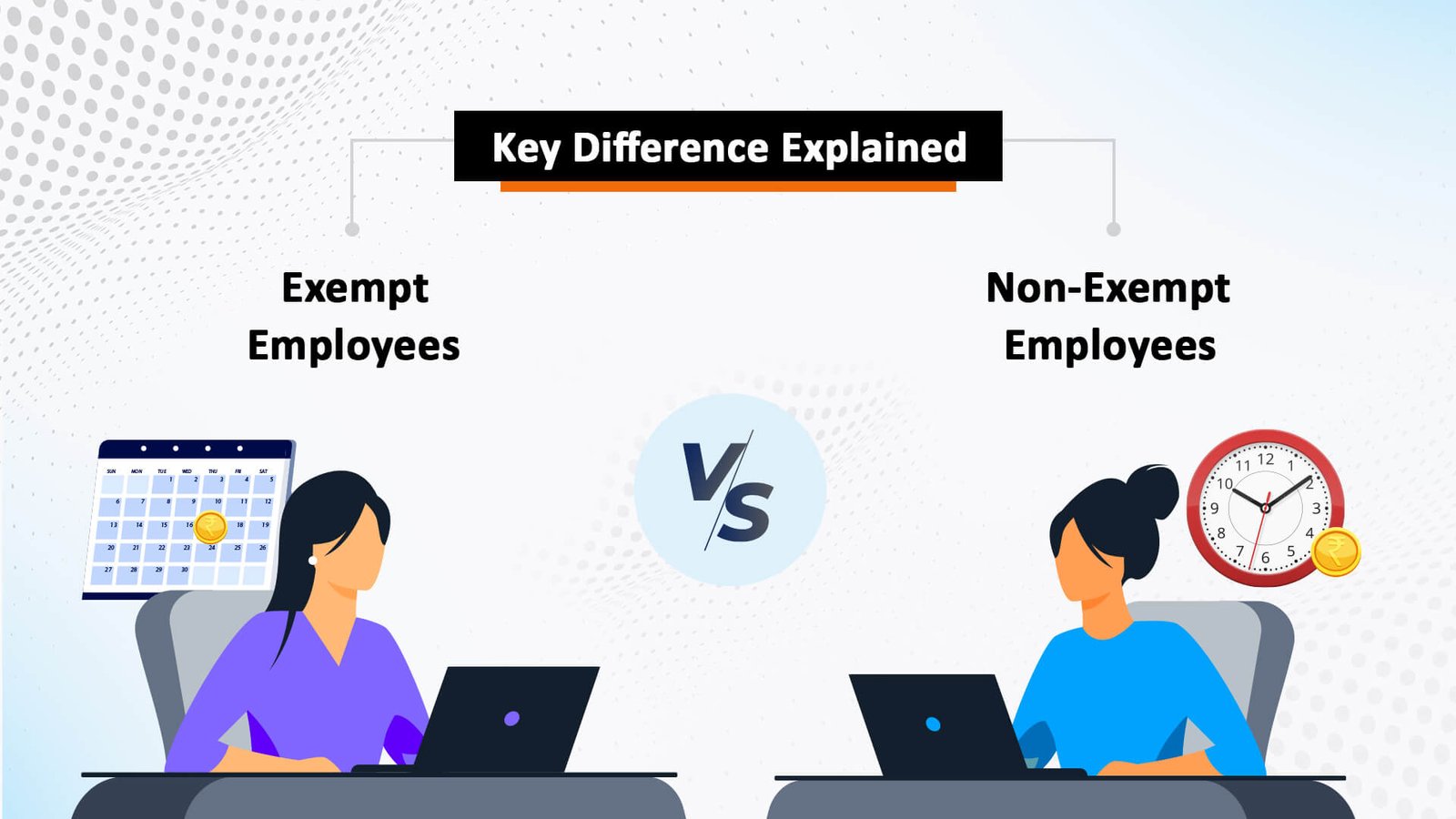To protect employees from discrimination and dangerous working conditions—and to protect employers from employee improprieties- Delaware labor laws are necessary. Such laws provide the framework and requirements for workplaces to function effectively.
If you’re recruiting in Delaware, it is important to know and be in line with the State of Delaware labor laws to prevent fines and legal complications.
Standard Working Hours
Delaware employers need to remain current with the Delaware labor laws for salary employees. For overtime pay and work hours, Delaware adheres to the federal Fair Labor Standards Act (FLSA), which dictates overtime compensation and work hours.
Minimum Wages
As of January 1, 2025, the Delaware minimum wage is $15.00 for every hour worked. Not everyone working in Delaware is covered by this stipulation. There are some exceptions, including:
- Domestic workers who work in private homes.
- Federal government workers.
- Agricultural workers.
- Outside salesmen who work on commission.
- Volunteers.
- Executive, administrative, and professional employees.
- Workers in fishing and fish processing at sea.
Inmates who are enrolled in programs operated by the Department of Corrections.
Tipped Minimum Wages
In the state of Delaware, tipped employees have a minimum wage of $2.23 per hour. The employer can pay this wage provided the employee’s total compensation, including tips, is no less than $15 per hour. This provision applies only to those employees who earn more than $30 in tips every month.
Overtime Laws
Delaware does not have its own state-specific overtime laws, so the federal Fair Labor Standards Act (FLSA) applies. Under the FLSA, non-exempt employees must be paid 1.5 times their regular hourly rate for any work beyond 40 hours per week.
Employees exempt from overtime include administrative, executive, and professional staff earning at least $684 per week.
Meal And Rest Breaks
As per Delaware labor laws breaks, Workers who are to work 7.5 hours or more during the day must be provided a meal break of a minimum of 30 minutes.
The break should occur after the initial 2 hours of work and before the final 2 hours, except under certain situations:
- Workers working directly with children for a local school board.
- Cases covered by a collective bargaining agreement or employment contract.
Exemptions that may be issued by the Secretary of Labor, for example, if public safety might be impacted or for a company with less than 5 employees at a single location.
Leave Laws
Employees may need extended time off due to serious medical conditions, caring for a family member, or recovering from an illness.
The Family and Medical Leave Act (FMLA) ensures eligible Delaware employees at covered employers can take up to 12 weeks of unpaid, job-protected leave within 12 months.
To qualify for FMLA leave, an employee must:
- Have worked at least 1,250 hours during the 12 months before requesting leave.
- Have been employed at the company for over 12 months.
- Be employed by a covered employer with 50 or more employees within a 75-mile radius.
At present, Delaware only enforces FMLA; there is no separate state-level leave law. Most employers with 10 or more employees will need to participate.
Child Labor Laws
As per the Delaware labor laws for minors, Employers must keep a work permit on file for any minor they hire. Permits are issued by school district superintendents (or authorized school representatives) and the Department of Labor.
Minors are entitled to a minimum 30-minute break for every 5 consecutive hours worked.
Delaware labor laws for minors also regulate the hours and types of work minors can perform:
| Age Group | Conditions | Rules & Restrictions |
| 14 and 15-year-olds | During school: |
|
| During vacation periods: |
|
|
| Limits on types of work: | Minors under 16 cannot work in hazardous jobs prohibited by the FLSA, including:
|
|
| 16 and 17-year-olds | Hazardous work restrictions: | Cannot work in hazardous roles prohibited by the FLSA, including:
|
Employers who violate Delaware’s child labor laws may face civil fines of up to $10,000 per violation.
Health & Workplace Safety
Delaware does not have a state-level workplace safety and health program. However, workplace safety in Delaware is regulated by the federal Occupational Safety and Health (OSH) Act, enforced by OSHA.
According to the OSH Act, employers are required to:
- Comply with all OSHA regulations and rules.
- Ensure a safe and healthy workplace.
- Provide occupational safety and health training.
- Post an OSHA poster conspicuously in the workplace.
- Maintain workplace injury and illness records.
Report work-related deaths to OSHA within 8 hours and serious injuries within 24 hours.
Delaware encourages workplace safety by having a Workplace Safety Program that provides employers participating in the program with potential discounts on workers’ compensation premiums.
Taxes In Delaware
Delaware has a state progressive individual income tax with rates of 2.2% to 6.6%. There are also income taxes levied by some local governments. There is an 8.7% corporate income tax levied by the state.
No more employee dissatisfaction from now on. Create accurate pay stubs!
No longer employee discontent from now cause of incorrect or misleading paystubs that undermine trust, trigger frequent payroll queries, and put your company at risk of compliance. When workers notice discrepancies in hours, deductions, or benefits, it affects morale and HR wastes hours resolving disputes rather than handling strategic work.
The answer is easy: generate accurate, clear paystubs every pay cycle by using the free paystub generator. Plain, predictable pay statements minimize questions, avoid conflicts, and keep your business in line with wage and recordkeeping regulations. Stub Creator guarantees that calculations are accurate, deductions are accounted for, and records are securely stored.
Time to action: switch to a trusted paystub generator and begin issuing accurate paystubs from your next payroll period. Are you ready to end payroll pain and restore employee trust? Generate accurate paystubs now and safeguard your people.
Curious Minds Also Ask
How many hours can you work without a break in Delaware?
In the state of Delaware, workers who work 7.5 consecutive hours or more per day are given a meal break of not less than 30 minutes. The break should be given after two hours of work and before the last two hours of the workday. The break can be unpaid if the worker is completely relieved of duties.
What are the labor laws in Delaware?
Delaware labor law adheres to both state and federal laws for the purpose of treating workers fairly and protecting them at work. Its state laws encompass topics like minimum wage, overtime compensation, meal periods, child labor laws, and work safety.
What disqualifies an employee for unemployment in Delaware?
An employee in Delaware may be disqualified from the receipt of unemployment benefits if they quit their employment without good cause, were fired for misconduct, or do not have the required qualifications, such as enough work history and wages.
Can your job reduce your hourly rate without telling you Delaware?
No, employers in Delaware cannot legally cut an employee’s hourly wage without notice. Any reduction in pay needs to be explained in clear terms ahead of time, and the new wage should meet state minimum wage requirements.
How many hours is full-time in Delaware?
Full-time work in Delaware is typically understood to be 40 hours per week, though the precise definition may differ by firm or sector. Other companies might use somewhat fewer or more hours to define full-time, but 40 hours is the de facto standard for benefit eligibility, including health insurance, paid time off, and retirement contributions.
What is the WARN Act in Delaware?
Delaware’s WARN Act is the federal Worker Adjustment and Retraining Notification (WARN) Act, which is statewide. It mandates employers with 100 or more full-time workers to give at least 60 days’ notice before conducting a mass layoff or plant closure.
What are the overtime laws in Delaware?
Delaware uses the federal Fair Labor Standards Act (FLSA) for overtime rules. Non-exempt workers are entitled to be paid 1.5 times their usual hourly rate for any work beyond 40 hours in one workweek. Exempt workers, including executives, administrative professionals, professionals, outside salespersons, and some highly compensated workers, are excluded from overtime pay.
What jobs are in demand in Delaware?
As Delaware continues its digitization journey, numerous industries in Delaware will see high employee demand through 2025. Healthcare is of particular concern due to an ageing population and growing healthcare centres; positions like registered nurses, medical assistants and health services managers are in high demand due to this need.
What is the waiting period in Delaware?
Unemployment benefits in Delaware have a one-week waiting period. Following the filing of a claim, the initial week is a waiting week where the benefit is not paid. Claimants are eligible for benefits following this waiting period if they satisfy all eligibility criteria, such as working actively and not earning more than allowable earnings for that week.
Paystub In The USA: Everything Employers And Employees Need To Know
What are the labor laws for Delaware?
Delaware’s labor code protects unfair treatment and assures workplace safety for workers. The state minimum wage effective January 1, 2025, is $15.00 an hour. Non-exempt workers need to receive 1.5 times their usual hourly rate for more than 40 hours worked in a workweek, based on the federal Fair Labor Standards Act (FLSA).
What are the termination laws in Delaware?
Delaware is an at-will employment state, meaning employers may fire employees without justification as long as their reasons don’t violate any discriminatory or contractual regulations, while employees can quit without incurring penalties; exceptions could include cases in which firing violates antidiscrimination laws or violates contractual arrangements of employment.
How many days in a row can you work without a day off in Delaware?
Delaware does not specify how long employees must work without taking time off, although employees working 7.5 or more hours each day are entitled to a 30-minute meal break. Employers should encourage reasonable rest periods in physically demanding or dangerous positions in order to protect employee health and safety.
What is a good hourly wage in Delaware?
Delaware’s hourly competitive wage varies by industry and position; generally speaking, however, an hourly competitive wage that falls within state minimum wage as of 2025 of at least $15 an hour should be fair for entry-level jobs; skilled positions usually pay more. Living costs, experience levels and market demand also play into what constitutes fair wages in Delaware.
What are the pros and cons of moving to Delaware?
Delaware boasts numerous advantages, such as no state sales tax and pro-business regulations. Due to its size and proximity to the coast, commuting is generally easier throughout most parts of Delaware. While costs of living may be higher in some areas of the state and public transportation links less abundant than surrounding states.
What is the rule 7 in Delaware?
Rule 7 refers to procedural rules in Delaware courts which govern the filing and submission of legal documents according to court requirements. Essentially, this ensures that legal documents are submitted correctly.
What is the rule 16 in Delaware?
Rule 16 provides for pretrial conferences and case management in Delaware civil procedure, providing courts with tools for managing timeframes, setting schedules, organizing discovery processes efficiently, and ultimately expediting case resolution..
What is the rule 26 in Delaware?
Rule 26 provides guidelines for discovery procedures, such as disclosure of evidence, obligations between parties to share information and pretrial planning requirements. It ensures both parties have access to necessary evidence in preparation for trial while upholding fairness and transparency throughout the legal process.
FAQ's
What is the minimum wage in Delaware for 2025?
+
As of 2025, Delaware’s minimum wage is $13.25 per hour. The rate is set to increase annually under state legislation, with the goal of reaching $15.00 per hour by 2026. Employers must ensure all employees receive at least this minimum unless exempt under federal or state law.
Are employers in Delaware required to provide paid sick leave?
+
Currently, Delaware does not mandate a general paid sick leave law for private-sector employers. However, some companies voluntarily offer paid time off (PTO) policies, and specific industries or local ordinances may impose additional requirements. Federal laws like the Family and Medical Leave Act (FMLA) still apply.
What are the overtime rules under Delaware labor law?
+
Delaware follows the federal overtime standard, which requires employers to pay eligible employees 1.5 times their regular pay rate for all hours worked over 40 hours in a workweek. Certain employees, such as executives and professionals, may be exempt from overtime based on job duties and salary level.
How often must employees in Delaware be paid?
+
Employers in Delaware must pay employees at least once every month. However, many employers choose to pay weekly or biweekly. Paydays must be scheduled regularly, and employers must provide detailed pay statements outlining hours worked, deductions, and total pay.





